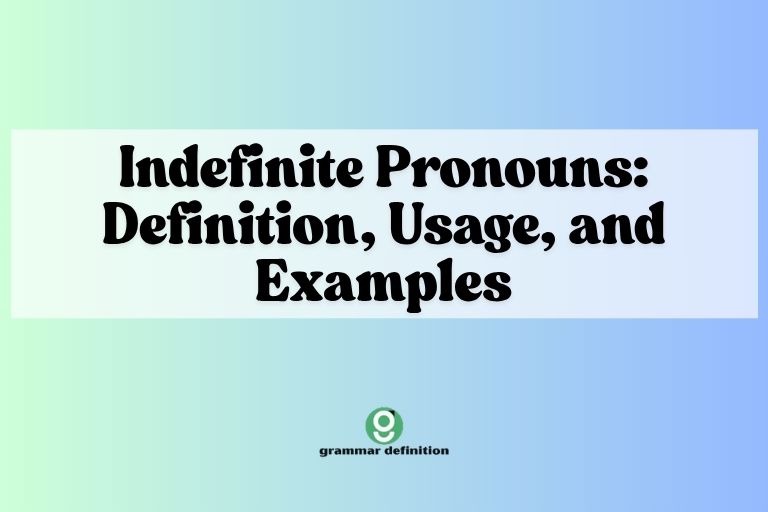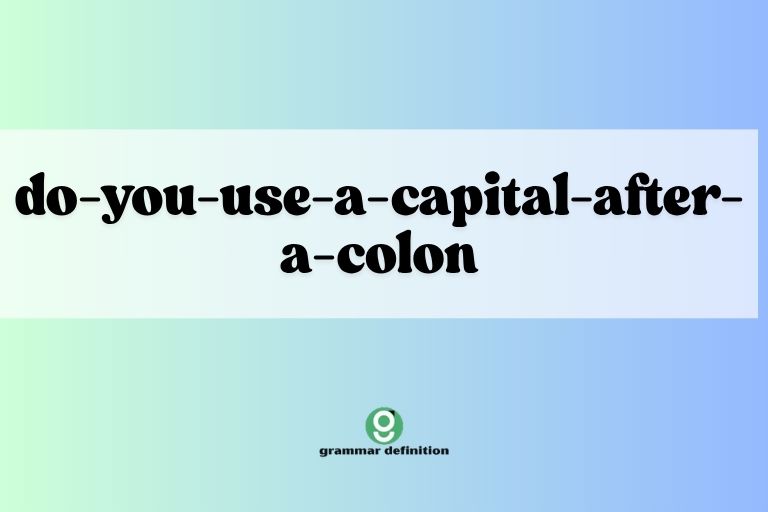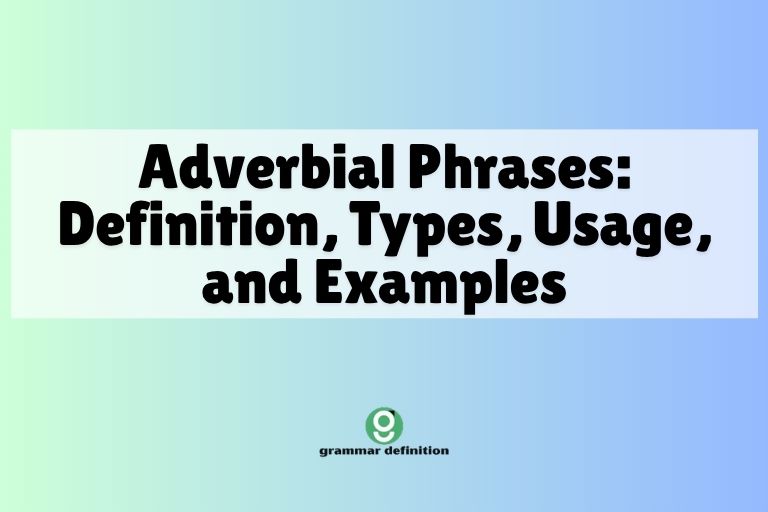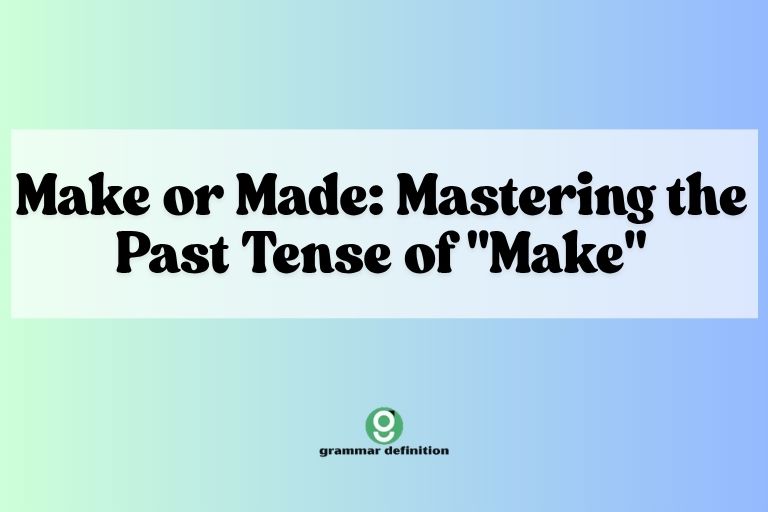Indefinite Pronouns: Definition, Usage, and Examples

Indefinite pronouns are essential components of English grammar, allowing us to refer to nonspecific persons, places, or things. Mastering their usage enhances clarity and precision in our writing and speech.
This article provides a comprehensive overview of indefinite pronouns, covering their definition, types, usage rules, common mistakes, and advanced applications. Whether you’re a beginner or an advanced learner, this guide will equip you with the knowledge and practice needed to confidently use indefinite pronouns.
Table of Contents
- Introduction
- Definition of Indefinite Pronouns
- Structural Breakdown
- Types of Indefinite Pronouns
- Examples of Indefinite Pronouns in Sentences
- Usage Rules for Indefinite Pronouns
- Common Mistakes with Indefinite Pronouns
- Practice Exercises
- Advanced Topics
- Frequently Asked Questions (FAQ)
- Conclusion
Definition of Indefinite Pronouns
An indefinite pronoun is a pronoun that refers to nonspecific persons, places, or things. Unlike personal pronouns (e.g., he, she, it) or demonstrative pronouns (e.g., this, that), indefinite pronouns do not refer to a specific noun or antecedent. They indicate an unknown or unspecified quantity or individual. They are used when the exact identity of the noun is not known, not important, or not necessary to mention directly.
Indefinite pronouns can function as subjects, objects, or complements within a sentence. They add flexibility to our language by allowing us to make general statements without specifying particular details.
Understanding their function is crucial for constructing grammatically correct and contextually appropriate sentences.
Structural Breakdown
Indefinite pronouns can be single words or compound words. Single-word indefinite pronouns include words like all, any, some, none, each, either, one, both, few, many, several. Compound indefinite pronouns are formed by combining these words with -body, -one, or -thing (e.g., everybody, someone, anything). The structure of a sentence containing an indefinite pronoun follows the standard subject-verb-object order, where the indefinite pronoun typically functions as the subject or object. For example:
- Subject: Someone called while you were out.
- Object: I didn’t see anyone.
The grammatical number (singular or plural) of the indefinite pronoun affects verb conjugation. Some indefinite pronouns are always singular (e.g., each, everyone), some are always plural (e.g., both, few), and some can be either singular or plural depending on the context (e.g., all, some).
Types of Indefinite Pronouns
Indefinite pronouns can be categorized into several types based on their meaning and grammatical behavior. These categories help to clarify their usage and ensure correct agreement with verbs and other pronouns.
Universal Indefinite Pronouns
Universal indefinite pronouns refer to all members of a group. These include all, every, everyone, everything, everybody, each. These pronouns usually emphasize the entirety of a group or category.
Partial Indefinite Pronouns
Partial indefinite pronouns refer to a part of a group. These include some, any, someone, somebody, something, anyone, anybody, anything, no one, nobody, nothing, none. These pronouns indicate an unspecified portion of a group or category.
Singular Indefinite Pronouns
Singular indefinite pronouns refer to one person or thing. These include each, every, everyone, everything, everybody, someone, somebody, something, anyone, anybody, anything, no one, nobody, nothing, one, either, neither. They require a singular verb form.
Plural Indefinite Pronouns
Plural indefinite pronouns refer to more than one person or thing. These include both, few, many, several. They require a plural verb form.
Compound Indefinite Pronouns
Compound indefinite pronouns are formed by combining other words with -body, -one, or -thing. Examples include everybody, everyone, everything, somebody, someone, something, anybody, anyone, anything, nobody, no one, nothing. They function similarly to their base words but often add a sense of generality or anonymity.
Examples of Indefinite Pronouns in Sentences
The following tables provide extensive examples of indefinite pronouns used in various contexts. These examples illustrate the different types of indefinite pronouns and their functions within sentences.
Table 1: Universal Indefinite Pronouns
This table showcases the use of universal indefinite pronouns, which refer to all members of a group. Pay attention to how these pronouns emphasize the completeness of a category.
| Indefinite Pronoun | Example Sentence |
|---|---|
| All | All of the students passed the exam. |
| Every | Every child deserves a good education. |
| Everyone | Everyone is welcome to join the party. |
| Everything | Everything happens for a reason. |
| Everybody | Everybody needs a little bit of love. |
| Each | Each participant received a certificate. |
| All | All that glitters is not gold. |
| Every | Every day is a new beginning. |
| Everyone | Everyone should have access to healthcare. |
| Everything | Everything will be alright in the end. |
| Everybody | Everybody was excited about the trip. |
| Each | Each of the books is a classic. |
| All | All of my friends are coming to the concert. |
| Every | Every seat in the theater was filled. |
| Everyone | Everyone in the class received a passing grade. |
| Everything | Everything in the store is on sale. |
| Everybody | Everybody seems happy today. |
| Each | Each apartment has its own balcony. |
| All | All the tickets have been sold. |
| Every | Every song on the album is fantastic. |
| Everyone | Everyone agreed with the proposal. |
| Everything | Everything I need is right here. |
| Everybody | Everybody clapped after the performance. |
| Each | Each employee received a bonus. |
| All | All the food was delicious. |
| Every | Every page of the book was interesting. |
| Everyone | Everyone deserves a second chance. |
| Everything | Everything is connected. |
| Everybody | Everybody is welcome to express their opinion. |
| Each | Each flower in the garden is unique. |
Table 2: Partial Indefinite Pronouns
This table provides examples of partial indefinite pronouns, which refer to an unspecified part of a group. Note how these pronouns indicate an indefinite quantity or identity.
| Indefinite Pronoun | Example Sentence |
|---|---|
| Some | Some of the cake was eaten. |
| Any | Is any of this true? |
| Someone | Someone left their umbrella here. |
| Somebody | Somebody needs to clean this mess. |
| Something | I heard something strange last night. |
| Anyone | Did anyone see the accident? |
| Anybody | Is anybody home? |
| Anything | Is there anything I can do to help? |
| No one | No one answered the door. |
| Nobody | Nobody knows the answer. |
| Nothing | Nothing seems to be working today. |
| None | None of the apples were ripe. |
| Some | Some people prefer coffee over tea. |
| Any | Do you have any questions? |
| Someone | Someone told me you were looking for me. |
| Somebody | Somebody should take out the trash. |
| Something | I want to buy something nice for my mother. |
| Anyone | Can anyone play the piano? |
| Anybody | Does anybody have a pen I can borrow? |
| Anything | I don’t want anything to do with it. |
| No one | No one understands my point of view. |
| Nobody | Nobody expected such a surprise. |
| Nothing | Nothing can replace the love of a family. |
| None | None of the students failed the test. |
| Some | Some of the information is incorrect. |
| Any | Any day is a good day for a walk. |
| Someone | Someone is knocking at the door. |
| Somebody | Somebody has to take responsibility. |
| Something | Something smells delicious. |
| Anyone | If anyone needs help, let me know. |
| Anybody | Is anybody interested in joining the club? |
| Anything | I haven’t seen anything like it before. |
| No one | No one deserves to be treated unfairly. |
| Nobody | Nobody came to the meeting. |
| Nothing | Nothing is impossible if you believe in yourself. |
| None | None of the cookies are left. |
Table 3: Singular and Plural Indefinite Pronouns
This table highlights the difference between singular and plural indefinite pronouns. Note how singular pronouns take singular verbs, while plural pronouns take plural verbs.
| Indefinite Pronoun | Singular Example | Plural Example |
|---|---|---|
| Each | Each of the students has a book. | N/A |
| Every | Every student is required to attend. | N/A |
| Everyone | Everyone is ready for the test. | N/A |
| Everything | Everything is in its place. | N/A |
| Everybody | Everybody is excited. | N/A |
| Someone | Someone is at the door. | N/A |
| Somebody | Somebody is calling your name. | N/A |
| Something | Something is burning in the kitchen. | N/A |
| Anyone | Anyone is welcome to join. | N/A |
| Anybody | Anybody is allowed to participate. | N/A |
| Anything | Anything is possible. | N/A |
| No one | No one is there. | N/A |
| Nobody | Nobody is answering the phone. | N/A |
| Nothing | Nothing is working properly. | N/A |
| One | One is never too old to learn. | N/A |
| Either | Either option is acceptable. | N/A |
| Neither | Neither of them is available. | N/A |
| Both | N/A | Both of them are coming to the party. |
| Few | N/A | Few people were interested in the topic. |
| Many | N/A | Many students are studying for the exam. |
| Several | N/A | Several guests have already arrived. |
| Some | Some of the water is contaminated. | Some of the apples are rotten. |
| All | All of the milk is gone. | All of the books are on the shelf. |
| None | None of the information was helpful. | None of the tickets were sold. |
| Any | Any of this is acceptable. | Any of these options are viable. |
Usage Rules for Indefinite Pronouns
Using indefinite pronouns correctly involves understanding subject-verb agreement, pronoun agreement, and the proper use of “of” phrases. These rules help ensure grammatical accuracy and clarity.
Subject-Verb Agreement
Subject-verb agreement is crucial when using indefinite pronouns. Singular indefinite pronouns require singular verbs, while plural indefinite pronouns require plural verbs. For example:
- Everyone is invited. (Singular)
- Both are correct. (Plural)
For indefinite pronouns that can be either singular or plural (e.g., some, all, none), the verb agreement depends on the noun they refer to in the “of” phrase. For example:
- Some of the cake is gone. (Singular because cake is singular)
- Some of the cookies are gone. (Plural because cookies is plural)
Pronoun Agreement
Pronoun agreement refers to the consistency in number and gender between a pronoun and its antecedent. When using indefinite pronouns, it’s essential to ensure that any subsequent pronouns referring to them agree in number. In the past, singular indefinite pronouns like everyone, someone, and anyone, were traditionally followed by the singular masculine pronoun he. However, contemporary usage often prefers the gender-neutral singular they to avoid gender bias. For example:
- Everyone should bring their own lunch. (Gender-neutral)
Alternatively, you can rephrase the sentence to avoid the pronoun issue altogether:
- All students should bring their own lunches.
Using “of” Phrases
Many indefinite pronouns are followed by an “of” phrase, which specifies the group or quantity being referred to. The noun in the “of” phrase influences the verb agreement for indefinite pronouns like some, all, none, and any. For example:
- All of the water is clean.
- All of the apples are ripe.
The preposition “of” is essential for connecting the indefinite pronoun to the specific noun it modifies. Omitting “of” can lead to ungrammatical sentences.
Common Mistakes with Indefinite Pronouns
Several common errors arise when using indefinite pronouns. Recognizing these mistakes and understanding the correct usage can significantly improve your grammar.
Incorrect: Everyone are happy.
Correct: Everyone is happy.
Explanation: Everyone is a singular indefinite pronoun and requires a singular verb.
Incorrect: Somebody left their keys.
Correct: Somebody left his or her keys. (Formal) or Somebody left their keys. (Informal, gender-neutral)
Explanation: Traditionally, singular indefinite pronouns take singular pronouns. However, using “his or her” can be cumbersome, and the gender-neutral “their” is increasingly accepted.
Incorrect: All the students is here.
Correct: All the students are here.
Explanation: In this case, “all” refers to the plural noun “students” and requires a plural verb.
Incorrect: None of the books was interesting.
Correct: None of the books were interesting.
Explanation: “None” refers to the plural noun “books” and requires a plural verb.
Incorrect: Any of the pie are left.
Correct: Any of the pie is left.
Explanation: Here “any” refers to singular uncountable noun “pie”, so singular verb “is” is correct.
Incorrect: Any of the cookies is left.
Correct: Any of the cookies are left.
Explanation: Here “any” refers to plural countable noun “cookies”, so plural verb “are” is correct.
Practice Exercises
Test your understanding of indefinite pronouns with these practice exercises. Choose the correct indefinite pronoun to complete each sentence.
Exercise 1: Choose the correct verb form.
| Question | Options | Answer |
|---|---|---|
| Everyone (is/are) invited to the party. | is / are | is |
| Both (is/are) coming to the meeting. | is / are | are |
| Some of the cake (is/are) gone. | is / are | is |
| Some of the cookies (is/are) missing. | is / are | are |
| Each of the students (has/have) a book. | has / have | has |
| Few (is/are) interested in the topic. | is / are | are |
| Many (is/are) attending the conference. | is / are | are |
| Nobody (knows/know) the answer. | knows / know | knows |
| Anything (is/are) possible. | is / are | is |
| All of the water (is/are) clean. | is / are | is |
Exercise 2: Fill in the blank with the appropriate indefinite pronoun.
| Question | Answer |
|---|---|
| __________ is knocking at the door. | Someone/Somebody |
| I don’t want __________ to do with it. | anything |
| __________ of the students passed the test. | All |
| __________ seems to be working today. | Nothing |
| __________ should bring their own lunch. | Everyone |
| Is __________ home? | anybody |
| __________ of the apples were ripe. | None |
| __________ left their umbrella here. | Someone/Somebody |
| __________ needs to clean this mess. | Somebody |
| Did __________ see the accident? | anyone |
Exercise 3: Correct the sentences.
| Incorrect Sentence | Correct Sentence |
|---|---|
| Everyone are happy. | Everyone is happy. |
| All the students is here. | All the students are here. |
| None of the books was interesting. | None of the books were interesting. |
| Someone have to do it. | Someone has to do it. |
| Anybody are welcome. | Anybody is welcome. |
| Everybody are going to the party. | Everybody is going to the party. |
| Each children received a gift. | Each child received a gift. |
| Several of the cake was eaten. | Several of the cake was eaten. |
| Few of the water are polluted. | Few of the water is polluted. |
| Many of the student is absent. | Many of the students are absent. |
Advanced Topics
For advanced learners, understanding the nuances of indefinite pronoun usage in different contexts is crucial. This section explores formal vs. informal usage and the use of indefinite pronouns in questions.
Formal vs. Informal Usage
The choice of indefinite pronoun can vary depending on the formality of the context. In formal writing, it’s often preferred to use “his or her” to maintain grammatical correctness when referring to singular indefinite pronouns.
However, in informal speech and writing, the gender-neutral “their” is widely accepted. For example:
- Formal: Everyone should submit his or her assignment on time.
- Informal: Everyone should submit their assignment on time.
Additionally, some indefinite pronouns are more common in formal contexts, while others are more frequent in informal settings. For instance, “one” is often used in formal writing to refer to a general person, while “you” is more common in informal speech.
Indefinite Pronouns in Questions
Indefinite pronouns can be used in questions to inquire about unspecified persons, places, or things. The choice of indefinite pronoun depends on the expected answer and the context of the question.
For example:
- Is anyone coming to the party? (General inquiry)
- Did someone call while I was out? (Specific inquiry)
- Is there anything I can do to help? (Offering assistance)
In negative questions, indefinite pronouns like “any” are often used to express doubt or disbelief. For example:
- Isn’t anyone going to help me?
Frequently Asked Questions (FAQ)
This section addresses common questions about indefinite pronouns to further clarify their usage.
- What is the difference between “someone” and “somebody”?
“Someone” and “somebody” are generally interchangeable and have the same meaning. “Someone” is slightly more formal, but both are widely used in everyday language.
- How do I decide whether to use a singular or plural verb with “some”?
The verb agreement with “some” depends on the noun in the “of” phrase. If the noun is singular, use a singular verb. If the noun is plural, use a plural verb. For example: Some of the water is clean. Some of the apples are ripe.
- Is it grammatically correct to use “their” with singular indefinite pronouns like “everyone”?
Traditionally, it was considered incorrect. However, the use of the singular “they” is increasingly accepted as a gender-neutral alternative to “he or she.” Many style guides now recognize its validity, particularly in informal contexts.
- What is the difference between “none” and “no one”?
“None” means “not one” or “not any” and is used when referring to a group or quantity. “No one” refers specifically to people and means “not a single person.” For example: None of the apples were ripe. No one answered the door.
- Can indefinite pronouns be used as adjectives?
Yes, some indefinite pronouns can also function as adjectives. For example: Every student is required to attend. Some people prefer coffee over tea.
- What are the most common indefinite pronouns?
The most common indefinite pronouns include all, some, any, everyone, someone, anyone, no one, everything, something, anything, nothing, both, few, many, several, each, and every.
- How do I avoid gender bias when using indefinite pronouns?
Use the singular “they” as a gender-neutral pronoun, rephrase the sentence to use a plural noun, or use “he or she” (though this can be cumbersome). For example: Everyone should bring their own lunch. All students should bring their own lunches. Everyone should bring his or her lunch.
- Is the use of “nothing” and “anything” always negative?
The use of “nothing” is always negative. The use of “anything” can be in questions or in negative statements. For example: “I have nothing to say.” (negative) and “Do you have anything to say?” (question).
Conclusion
Indefinite pronouns are vital for expressing nonspecific references in English. Understanding their types, usage rules, and common mistakes can significantly enhance your grammatical accuracy and clarity.
By mastering subject-verb agreement, pronoun agreement, and the use of “of” phrases, you can confidently incorporate indefinite pronouns into your writing and speech.
Continue practicing with various exercises and examples to solidify your knowledge. Remember to pay attention to the context and formality of the situation when choosing the appropriate indefinite pronoun.
With consistent effort, you’ll master the art of using indefinite pronouns effectively, adding depth and precision to your communication.






